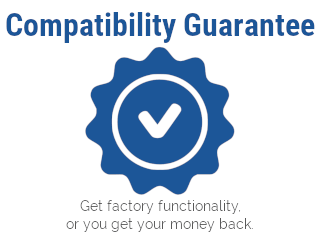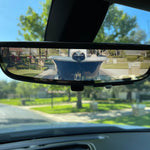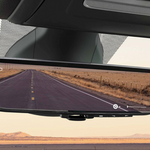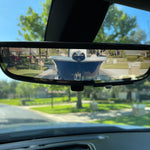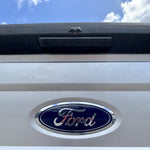
Increases at the gas pump have drivers looking for ways to get more miles for the buck.
The average price for a gallon of gas sky-rocketed to $4.32 at the time this post was written.
If you own a 2015 Ram 1500, that means it costs you $112.32 to fill up. Even if you're driving a Nissan Versa you can expect to drop nearly $50 to top-off the tank.
To say the least, gas prices have caused all of us to start searching for tricks to improve gas mileage. In the internet age, a quick Google or Reddit search will be where most drivers typically begin. Either search will churn up a plethora of suggestions on saving fuel.
You'll get some of the common suggestions like finding routes with less stops, smoother take-offs and simply driving less. But you'll also find other suggestions that might make you wonder.
At over $4 per gallon though, you could be tempted to try almost any idea.
We found some of the more—shall we say—creative suggestions. Then we researched suggestions to see if any had value. Below are some gas saving ideas and what the research says about their effectiveness.
Tire Inflation and Treadwear
Tires can be a very effective way to get better gas mileage. You can start with the basics; proper inflation pressure and good treadwear. These two factors will be the simplest ways to squeeze a few more miles out of every gallon.
Smaller Tires
If you own a truck or Jeep, larger tires have become very popular. Realize that in times of high gas prices, while they provide the look you want, they're decreasing your gas mileage.
Bigger tires weigh more. A heavier tire causes your engine to work harder to make them move. A harder working engine means a decrease in miles per gallon. If you spend time in stop-start traffic, the weight-effect gets magnified. Even with highway driving, heavier tires still cause your engine to work harder while driving.
Bottom line, don't upgrade to those bigger tires until prices stabilize.
Tires and Rolling Resistance
Added off-road tires to your daily driver. Yep, that's hurting you at the gas pump for sure.
Rolling resistance describes the force that reists motion between the wheel and the road surface. Off-road tires by design have a greater rolling resistance than normal tires. If you've added off-road tires to your daily-driver, making a switch back to your old street tires will save you on fuel costs. Of course this option only exists if you still have the old tires laying around.
Improved Exhaust System
Believe it or not, your exhaust system can improve your vehicle's fuel efficiency. How much depends on the vehicle, the exhaust system and the condition of other systems in your vehicle.
All that said, an improved exhaust system can improve fuel efficiency from 2 to 10 percent. Depending upon how much you're willing to spend and costs, this idea could be worth the effort for the right driver and vehicle.
People most often upgrade their exhaust systems in order to get more power. The increase in power from the exhaust system results from improved efficiency in how the engine runs.
The changes in your gas mileage may only add up to 2 or 3 miles per gallon. If you needed an excuse to invest in a new exhaust system though, you've found your excuse.
Own a small 4-cylinder car? Smaller vehicles can benefit more, around 5% increase in gas mileage.
Other Ideas
Clean Fuel Injectors — Clean fuel injectors make for a more efficient engine. Like we discussed with exhaust systems, engine efficient generally equates to better gas mileage. This can cost less than a new exhaust system.
Reduce Drag — Any type of rack (luggage, canoe, etc.) on the outside of your vehicle increases drag, especially at highway speeds. If you don't need it, it's probably best to remove any non-critical parts that create drag while you drive.
Gas Octane Level — Plenty of debate surrounds the benefits of gas mileage when it comes to octane level. Some sources will tell you higher octane fuel can increase gas mileage, others say it doesn't. When a gallon of premium can cost $1 more per gallon, it's probably not worth it to find out. If your vehicle manual only recommends high-octane fuel, you can get by without the added cost. If you're vehicle requires high-octane, then you're stuck with paying premium prices.
![banner right]()
![banner right]()



